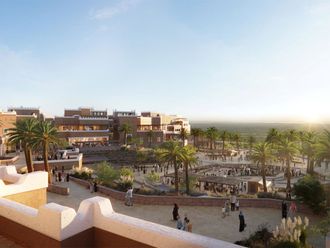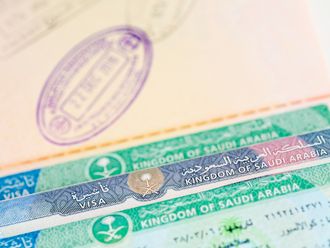Dubai: AccorHotels, Europe’s largest hotel company which finalised its deal to buy the Swiss operator Movenpick for €482 million (Dh2.05 billion), said the purchase of 84 upscale hotels and a further 18 under development will greatly strengthen the company’s position in the Middle East.
Although the “hard work” of integrating the two is only just beginning, Chris Cahill, Accor’s chief executive for luxury brands, said it was already in talks to continue Movenpick’s expansion throughout the region.
“It’s an important acquisition for us for two or three reasons,” said Cahill, who also heads the company’s North American operations, adding that the deal complemented Accor’s strategy of focusing on asset-light businesses.
“It gives us an additional presence primarily in the Middle East and Africa... it really helps us here,” Cahill said.
With regulatory approval for the deal now secured, Accor inherits Movenpick’s 84 hotels, which include 51 properties across the Middle East and Africa (MEA), and an additional 18 in development.
Prior to the merger, Accor had 222 hotels in the region and a further 90 in the pipeline. Cahill said that the addition of Movenpick, previously owned by Prince Al Waleed Bin Talal’s Kingdom Holdings, will fit “in our family of brands, above our upscale and below our upper-upscale category, and that’s an area that is fast-growing,” he said.
As major hotel chains increasingly aim to build scale, he declined to rule out further acquisitions, saying that Accor would “continue to look at other opportunities which will further enhance our portfolio.”
Cahill added that they would be brands that fit into Accor’s portfolio, are asset light, and strengthen the company’s position in weaker regions.
Asked if Accor, which has spent several billion euros in recent years to buy brands such as Raffles and Fairmont, had set aside capital for future takeovers, Cahill said it had strategic reserves but declined to specify how much.
Sharing his long-term outlook for the Middle East, Cahill said that he remained very confident about the region.
“It’s been a very strong market over a long period of time,” he said.
The executive did, however, note that there was a continuing imbalance between the supply and demand of hotel rooms. With an additional 50,000 hotel rooms due to be available over the next two years, by 2020 Dubai is expected to have the fifth largest inventory supply in the world, according to Duetto, a hotel management software firm.
“I’m sure that will improve over time. We’re very positive about the Middle East... which is why this acquisition is important to us,” Cahill said.
On the fundamentals of Dubai, he said that the emirate remains “a very desirable marketplace, it has tremendous infrastructure. I think it’s just a matter of demand catching up to the supply. We don’t look at it as a concern, at all.”












